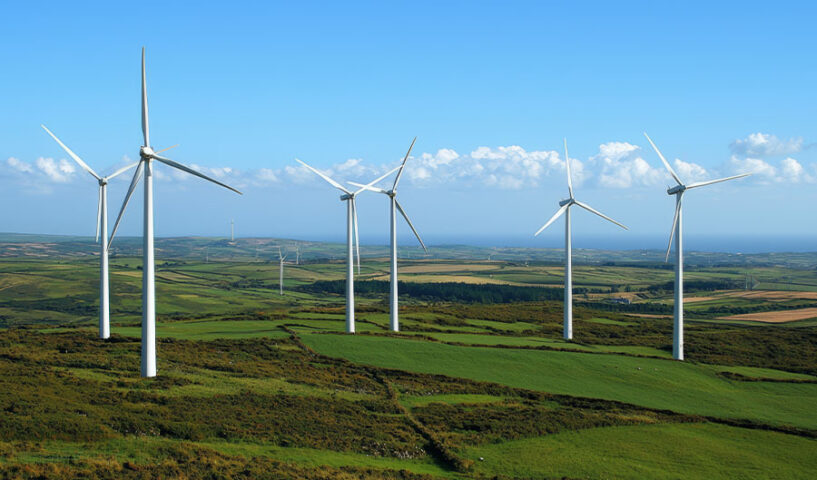
Renewable Logistics: Transport solutions for the energy transition
4th October 2024
Powering Prosperity: Ireland’s Offshore Wind Industrial Strategy
4th October 2024RESS ‘risk provisions’ sees volume uplift

RESS 4, the Government’s fourth Renewable Electricity Support Scheme marks significant progress on pricing and volume of allocation than its predecessor.
Announced in September 2024, RESS 4 has provisionally procured just over 2GWh (2,071 MWh) of generation capacity, which equates to around 1,334MW of onshore renewable electricity. This is comprised of 374MW of onshore wind and 960MW of solar. The auctions have resulted in a marginal price decrease per megawatt hour compared to the RESS 3 and RESS 2 auctions.
A total of 56 projects applied to participate in the RESS 4 qualification process. The final results qualified 43 projects to participate in the RESS 4 auction. Three projects did not qualify, and 10 projects formally withdrew from the process.
The average weighted bid price for the auction is €96.85 per MWh, representing a lower average price than both RESS 2 (€97.87) and RESS 3 (€100.47). The weighted average for wind was €90.47/MWh and €104.76/MWh for solar.
In addition to the marginal price decrease, the volumes secured in RESS 4 (1,334MW) are significantly higher than those secured in RESS 3, in which projects totalling 548MW were allocated funding for future generation.
Minister for the Environment, Climate and Communications Eamon Ryan TD said that while the results are encouraging, “we need a stronger pipeline of onshore wind and solar energy projects coming through our planning system and connecting to our grid”.
Ryan added: “The provisional results of the fourth onshore Renewable Electricity Support Scheme auction will help maximise the volume of renewables connecting to the electricity grid at the lowest cost to the consumer has proven to be a success.
“The average auction price of €96.85 per MWh is lower than both RESS 2 and RESS 3 and the auction has secured a significantly higher volume than RESS 3. The RESS annual auction programme has attracted major international investment into Ireland, creating sustainable employment and delivering for our communities and local economies.
“Ireland’s future prosperity lies in renewable energy and, as a country, we are ambitious. Our ambition will create an energy-independent Ireland, with a stable electricity supply at a stable price. Delivering on our ambition through RESS and other policy measures will create tens of thousands of new green jobs for communities across the State and attract investment.”
Adaptive measures and emissions targets shortfall
Possibly due to the shortfall of successful applications in RESS 3, in May 2024, the Department of the Environment, Climate and Communications made key changes to the terms and conditions of the RESS.
What the Department describes as “new risk provisions” were introduced with the aim to “shield both developers and consumers”.
The design changes aim to reduce potential risks and any associated risk premiums such as system operator delay or judicial reviews. This also aims to ensure the greatest value for the electricity consumer.
Firstly, the qualification process was streamlined to simplify the requirements on RESS applicants. Secondly, a new ‘relief event’ mechanism was included in the RESS 4 Implementation Agreement, enabling a generator to claim an adjustment (up to a maximum of 24 months) to milestone completion dates.
The relief event mechanism includes provision for the term of RESS 4 support to run past the RESS 4 support end-date (up to 31 December 2045). In addition, it provides scope for a generator to withdraw from RESS 4 without penalty.
While these measures have likely contributed to the increase in future generation, they remain significantly short of the State’s renewable energy targets of 17GW of renewable energy generation needed by 2030 to achieve its target of 80 per cent of electricity from renewables.
Noel Cunniffe, chief executive of Wind Energy Ireland, has said that planning challenges mean that there remains a shortfall in allocations to future wind farms.
“Renewable energy projects must have planning permission in order to enter a RESS auction, which emphasises the need for planning applications for renewable energy projects to be quickly, but thoroughly assessed,” Cunniffe said.
More encouraged was Conall Bolger, CEO of the Irish Solar Energy Association, who said that the allocation results “give us a real chance of hitting the Government’s solar targets”.
